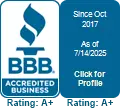Gen Z Entering The Housing Market~3 min read
Boomers are downsizing. Gen Xers are paying the kids’ college tuition. Millennials are a force to be reckoned with. But a new generation is entering the housing market with gusto: Gen Z.
Gen Zers were born between 1997 and 2015. The oldest are turning 24 this year. That may seem young to buy a home, but Gen Zers are jumping in with both feet. Many millennials are happy renting, but most Gen Zers say they want to own.
It’s been estimated that the number of Gen-Z mortgage applications have increased 57% from January to March 2021, which is up from 124% compared to March 2020.
Top Five Cities Where Gen Zers Are Buying
The top five cities for Gen Z (25 and under) purchasers between April 1, 2021 and June 29, 2021 were:
- Austin
- Houston
- Charlotte
- Philadelphia
- Atlanta
These choices make sense — all are cities with great neighborhoods and growing economies.
How Gen Zers Qualify for A Mortgage
Credit score and debt-to-income ratio are the pillars of a mortgage application.
Here’s what to focus on if buying a home is your goal:
- Get your credit score ready. A higher credit score means more favorable rates. Your credit score helps lenders evaluate your ability to pay back your loans, based on your borrowing history. Even small differences in the mortgage interest rate can lead to significant savings over the life of your mortgage.
- Get a free copy of your credit report and check it for errors. Some errors can affect your score. Errors can take weeks or even months to resolve with credit bureaus, so the sooner you report them, the better.
How to check your credit score for free:
- Discover offers a free FICO® Score online to anyone, even if you don’t have a Discover account.
- You can get a free FICO® Score by signing up for Experian Boost.
- Some banks and credit card issuers offer free FICO® Scores. Ask yours.
- If your credit score isn’t where you want it to be, you can take steps to improve it. When you access your credit report online, the website usually shows you the factors pulling your score down. The biggest influencers are payment history and revolving debt balances.
Check Your Debt-To-Income Ratio (DTI)
Your DTI is the total of your monthly debt payments divided by your gross monthly income. The lower your DTI, the more financing options will be available to you.
Here are a few ideas for lowering your DTI:
- If you have a car loan, pay it off before applying for your mortgage.
- Pay off any credit card balances in full. A zero balance should not hurt your credit score.
- Consider refinancing or consolidating current loans to reduce your monthly payments.
- Consider adding a co-borrower with a low DTI to your mortgage loan (keep in mind that the co-borrower’s credit score will also be a factor).
- If you plan to use rental income to qualify for a mortgage, make sure you have lease agreements. Your lender might even be able to consider the income of a partner, parent, or roommate in your new home.
Gen Zers Are Getting Into Homeownership Early
Gen Zers are already mastering the mortgage application process; they’re in the housing market to stay. It’s natural that they would want to capitalize on the current low cost to borrow, and start building equity.
Contact the Law Offices of Parnell, Michels & McKay
At Parnell, Michels & McKay, we handle real estate litigation, including landlord/tenant, and are well experienced in the areas of general civil litigation. Contact us today to discuss your case.
Our firm blends advocacy oriented practice with effective practical solutions for all our clients in Londonderry, N. Woodstock, and throughout New Hampshire. The attorneys at Parnell, Michels & McKay provide effective representation and counseling to assist our clients facing legal questions. We simplify the process so our clients can understand and are able to participate as partners in the resolution.
Our practice includes personal injury law such as motor vehicle accidents, falls, dog bites, workers compensation, social security disability, and other injuries.
We also practice family law, including divorce, post-divorce, unwed custody and property division, and collaborative divorce, and have extensive experience in bankruptcy, probate, boundary disputes, estate planning, corporate formation and other real estate litigation.















